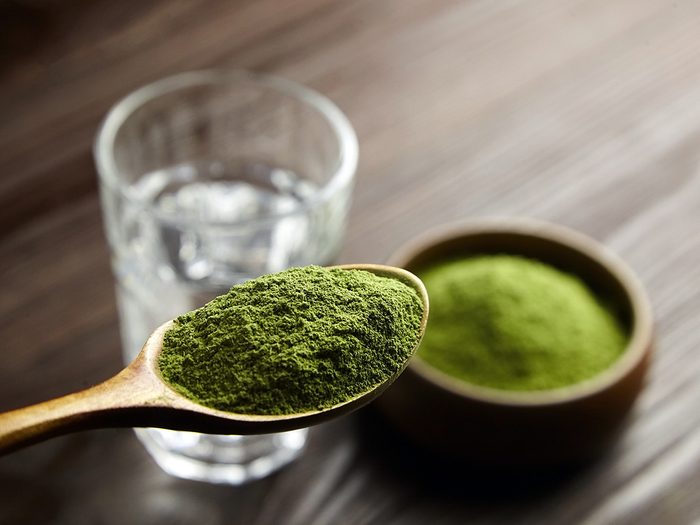Should You Be Drinking Your Greens?

Green powders are the latest health trend—but they might not be the best way to get your veggies in.
Dark green vegetables are often considered to be the cream of the health-food crop because they’re particularly rich in essential minerals like iron, magnesium and calcium, as well as vitamins C, K and many of the Bs. Now an array of products, from brands like Athletic Greens and Vital Proteins, promise all that goodness in one simple scoop of powder—just stir it into a glass of water. The powders are made of dehydrated veggies such as spinach and beetroot, plus spirulina, a type of algae full of nutrients.
Are green powders a waste of money?
But is drinking your greens as healthy as consuming them whole? The short answer is no. “I consider powdered greens to be a nutritional supplement,” says Maya Feller, a New York-based registered dietitian and author of Eating From Our Roots: 80+ Healthy Home-Cooked Favorites From Cultures Around the World. “Many of these products have added vitamins and minerals or other nutrients that don’t naturally occur in green vegetables, so they’re similar to a multivitamin.”
The crucial element many are missing is fibre. Fibre is good for your gut, helping to keep food moving through the digestive system. It’s found in whole vegetables, but most juices and powdered greens have little to none.
Still, getting your daily servings of vegetables isn’t always convenient—and that’s where green powders may come in handy. “They can help bridge the gap when you’re not able to meet your nutritional needs by food or beverages alone,” says Feller.
So are green powders are a waste of money? As a straight-up substitute for fibre-rich vegetables, they don’t deliver the best return on your investment. On the other hand, if you’re merely looking to supplement your intake, this is a nutrition trend you may want to explore.
Next, check out 12 high-fibre foods worth adding to your cart.






